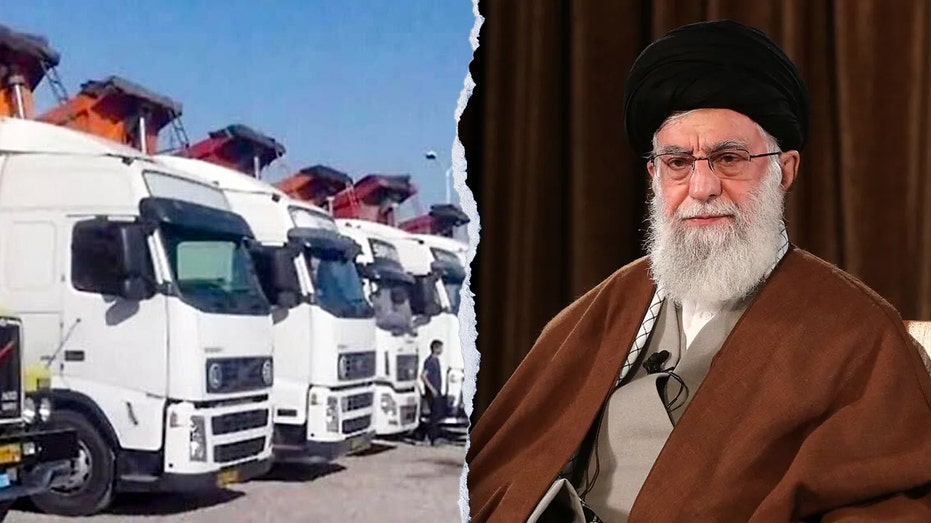Trump Administration Urged to Back Striking Iranian Truckers to Potentially Paralyze Regime
Iranian truck drivers' nationwide strike may bolster Trump's leverage in nuclear talks if U.S. provides support.

Iranian truck drivers have expanded their labor strike to encompass more than 100 towns and cities throughout the country, intensifying pressure on the clerical regime as authorities respond with force, particularly in the Kurdish city of Sanandaj. The current wave of industrial action highlights the increasingly precarious state of Iran's economy and the determination of key labor groups to push for improved conditions despite the risks.
Truckers, who serve as a crucial pillar in keeping the country’s supply chains moving, are protesting a range of issues including poor working conditions, high insurance costs, lack of roadside assistance, and corruption in cargo allocation. The movement began on May 18 in Bandar Abbas, a major port city in southern Iran, before rapidly spreading nationwide. Independent observers point to a spike in insurance fees coinciding with reduced access to medical care as among the core grievances driving the unrest.
In response to the growing strike, Iranian security forces have escalated their crackdown—especially in regions such as Sanandaj, where reports indicate a violent response to striking drivers. Despite official attempts at suppression, the scope and organization of the strike appear to be emboldening workers in other sectors and drawing international attention.
Alireza Nader, a Washington-based analyst specializing in Iranian labor movements, commented on the broader significance of the strike. He emphasized that “the nationwide trucker strikes have the potential to paralyze the regime as it faces increasing vulnerability. The strikes could prove even more effective if joined by workers in other crucial sectors, especially energy and transportation.”
American experts and activists are urging the U.S. government to support Iran's labor movement, drawing comparisons to President Ronald Reagan’s historic backing of organized labor in communist Poland as a strategy to empower dissent from within. They argue that providing material and moral support to Iranian workers could help advance human rights and democratic change.
Lisa Daftari, an Iran expert and journalist, describes the truckers’ movement as emblematic of broader dissatisfaction across Iranian society. “The latest nationwide truckers’ strike is not an isolated incident—it is only the latest manifestation of deep disenchantment among Iranians who are denied dignity and proper rights in every industry,” she said. According to Daftari, the persistence of labor unrest over the past four decades demonstrates widespread discontent and signals a clear call for solidarity from the international community.
The Union of Iranian Truckers and Heavy Vehicle Drivers has issued a statement underscoring the legal right to protest and rejecting government efforts to label striking workers as criminals. Their demands include:
- Reduced insurance premiums and restoration of medical benefits
- Greater transparency and fairness in cargo allocation
- Lower spare parts and freight brokerage fees
- Improved diesel quotas
- Enhanced security on highways
International labor organizations have previously expressed support for Iranian workers. In 2018, the U.S.-based Teamsters Union declared solidarity with striking Iranian truck drivers, and the AFL-CIO urged Tehran to release detained labor activists in 2019.
As U.S.-Iran nuclear negotiations continue, the unrest among critical labor groups like truck drivers underscores both the severity of Iran’s domestic challenges and the possible leverage points for the international community. The evolving strike movement could pose a significant test for the regime as it confronts mounting economic and political pressures.




